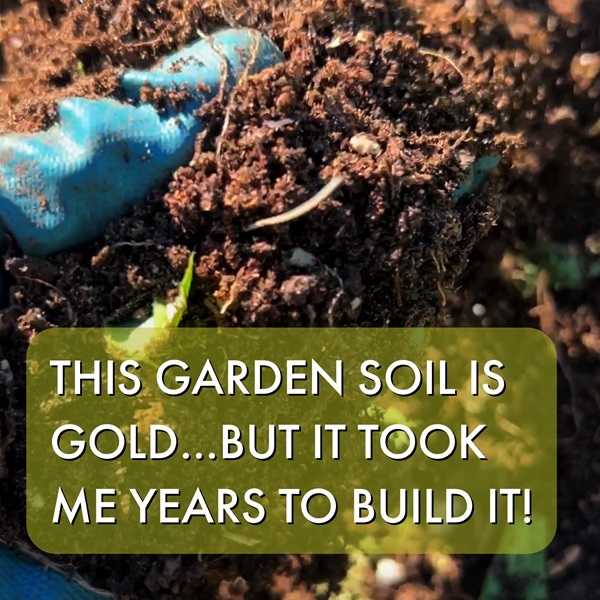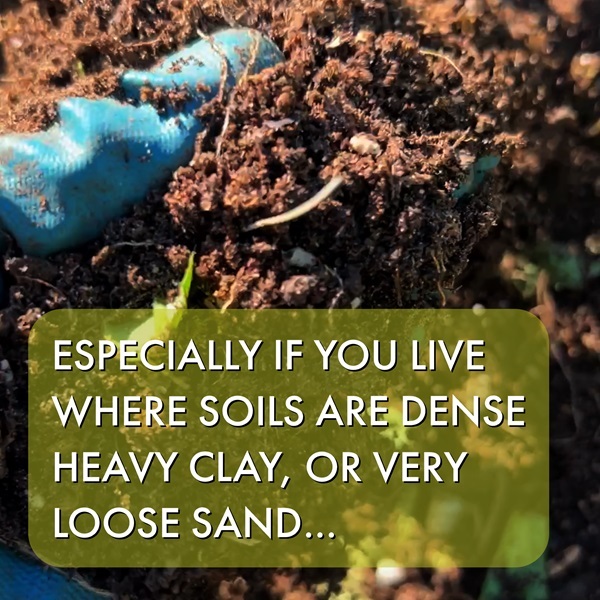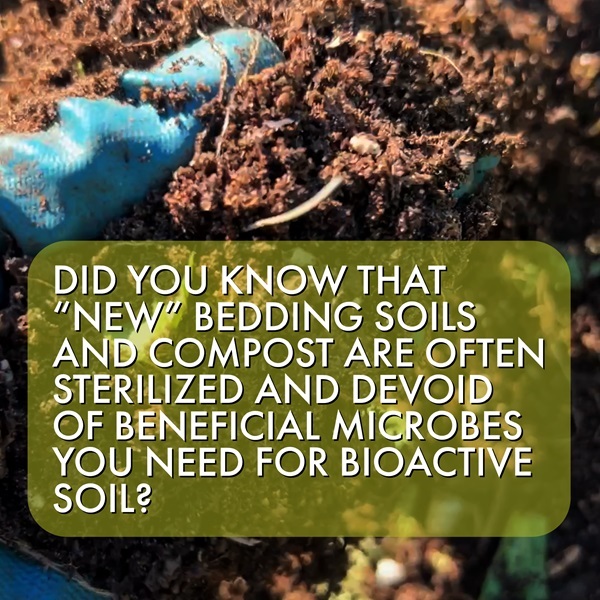NEW Garden Soil Doesn't Mean BETTER!
March 7, 2024
Confused About Garden Soil Health?
You're ready to get your veggie garden growing, so you build those beautiful new raised beds and then fill them with brand new garden bedding soil and compost. You plant your seeds or transplants, and then wonder why they just don't seem to be growing as vigorously as you'd expect; even worse they appear to be yellowing and stunted.
What's going on? I mean, you're using brand new soil so shouldn't your plants be happy?

You might be a plant and garden nerd if you get a case of the vapors when you get your hands into soil like this! (NO JUDGEMENT HERE!)
Soil structure, biology, and ecology - as well as nutrition in the context of plant growth - is fairly complex. We don't need to get into the weeds of soil science and plant nutrition here, but it is necessary to know at least a little bit how soil works in relation to how your plants take up elements.
Building productive bioactive soils in your garden and landscape often won't be an overnight process. It can years...

NEW Soil is Not Instantly Better
Did you know? “NEW soil”, be it in the form of bagged or bulk mixes and compost, aren’t “better” right out of the gate. I know, it’s a little counterintuitive. I can’t count the number of times I’ve been asked “why are my new vegetable transplants turning yellow when I just planted them in all new soil!” Well, it’s the microbes that are really doing all the heavy lifting for you and breaking down matter to release nutrients for your plants.
New sterilized compost and garden soils don't yet contain those microbe populations. So, the organic matter will be very slow to break down and release nutrients.

Until there are enough microbes in the to do the job, which happens over time in the garden after you’ve added new soil or amendments, you’ll probably need to supplement your plant’s diet withe addition of fertilizer - perhaps a little more often than you think.
You can add Mycorrhizal fungi to aid your plants uptake of nutrients, and Bacteria inoculants that benefit crops such as legumes. There are also "soil stimulator" or "root stimulator" products you can add to new soil to get the microbe party started.
If you've just filled your new raised beds, or amended hard ground soil with new garden mix or compost, it make take some time for the soil to "season". Over time, as it becomes more bioactive and the microbes are able to break down organic matter and release elements for your plants, those side dressings of compost or manure will do the job and you won't have to provide supplemental fertilizer as much or as often.
Want to learn more about soils, be it for native ecosystems, managed landscapes, or indoor plants and growing?
I cover soils and plant nutrition, in different depths and contexts, in each of my UCLA Extension courses: Botany for Gardeners (spring) and Indoor Plants: Care and Maintenance (winter).

